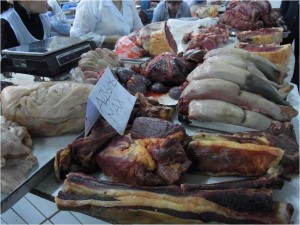February 23, 2011
Assessing Agriculture within a Potential Japan-Mongolia EPA

Promar senior consultant Chisa Ogura and research analyst Ayako Kuroki recently completed their field work in Mongolia for a study Promar is conducting of the role of and impact on agriculture within a potential Japan-Mongolia EPA.
To further strengthen the two countries’ trade and investment relationship, Japan and Mongolia agreed to commence EPA (Economic Partnership Agreement) negotiations from April 2011 and to better prepare Japan’s Ministery of Agriculture, Forestry and Fisheries (MAFF) for the negotiations, Promar was commissioned to conduct research on Mongolia’s international trade flows, as well as an analysis of the country’s agriculture, forestry and fisheries industries.
With more than 40 million head of livestock, including goats, sheep, cattle, horses, and camels, Mongolia’s livestock industry plays a key role in the country’s economy. Another growing agricultural industry is wheat farming. The manufacturing industry, however, lags behind the agriculture and mining sectors and will require more time to develope. For the coming years, increased production and exports of cashmere, leather and meat products will be Mongolia’s focus.
This photograph above was taken in a market in Ulan Bator, showing the diverse meat products sold in the country’s wet markets. Mongolian livestock are pasture fed on wild grass which gives their meat a unique taste. Promar consultants were told that Mongolians stationed abroad will often pack Mongolian meat in a PET bottle to take with them on their travels and will then mix it with the meat they buy while overseas, in order to have at least a little taste of home.
